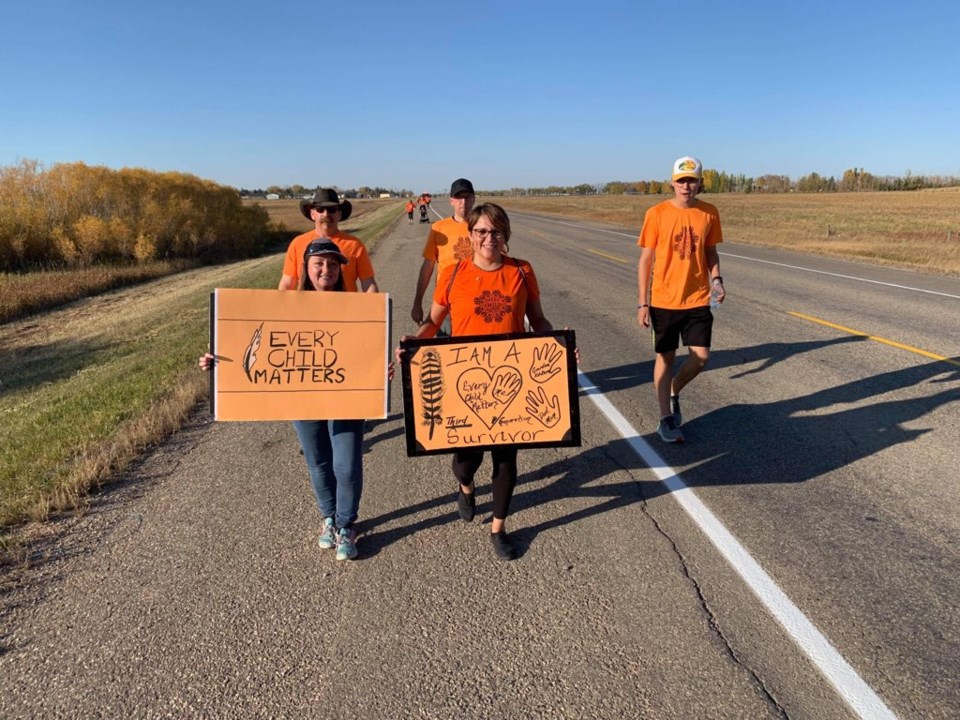For the second time, Sept. 30 will be a federal holiday to mark the National Day for Truth and Reconciliation.
Since this is a federal holiday, it doesn’t necessarily mean that we’re going to get a day off. Schools will be closed this year (they weren’t last year), but a lot of businesses will be open. Sept. 30 will be business as usual for a lot of people.
We’ll wake up, we’ll go to work, we’ll come home and we’ll do whatever it is we do after we head home for the day.
Some of us will take a few moments to pause and reflect on the long-standing effects caused by residential schools, not just for the survivors, but for generations of Indigenous people that followed. We’ll think about the progress that has been made in our relationship with Indigenous communities, and the extensive work that remains.
You’ll see events. There were activities last year at reserves and in communities across the country. There should be more this year now that there is time to plan something, and the COVID-19 restrictions have mostly been lifted across Canada.
Last year the government announced the federal holiday for Truth and Reconciliation a few weeks prior, giving people little advance notice. There wasn’t much of an opportunity to alter schedules.
And we saw how much this day really meant to our prime minister when he decided to take a holiday in Tofino, B.C., rather than be in Ottawa, despite all of the talk we’ve heard from him in the past seven years about the need to improve the quality of life for Indigenous peoples.
The National Day for Truth and Reconciliation needs to be a time of reflection, recognition and resolve. We need to commit to do better.
But we should ask what would be more effective for students? Giving them the day off in which they get to do what they want? Or being in school, where they can learn more about Indigenous peoples’ rich culture, and hear stories from residential school survivors?
I know they’re going to have lots of opportunities to learn about it this week and at other points in the school year, and it’s great they’re learning about residential schools. When I was in school, we didn’t hear about them. We heard about First Nations people and their culture, but we didn’t learn about the abuse and the other horrors at these schools, the fact that they had graveyards, or that there were still residential schools in Canada. (The last one didn’t close until I was in university).
It’s great there will be events happening in the community on and before Sept. 30, because people get the chance to learn more about this chapter of our nation’s history from the people who experienced it.
It’s important to reflect on what, if anything, has changed in the past year. Indigenous communities still face the same issues they faced a year ago. Those who live on reserves still face the same problems. They still encounter discrimination from non-Indigenous people. Long-standing drinking water advisories remain.
It’s also important to realize just how much work remains in building relationships with Indigenous peoples and how long it’s going to take. We didn’t get to this point in our history overnight. We’re not going to solve these problems overnight. It’s going to take the time and effort of generation after generation. And we’ll have to recognize that this is one of those problems that will never truly end.
So regardless of whether you get a holiday on Sept. 30 or not, or whether you get a day off school, it’s vital to take the time to pause and reflect. And it’s important to commit to do your part.
In the end, that’s the most important part of the National Day for Truth and Reconciliation. It’s not about whether you get a holiday or not. It’s about whether you’re willing to do your part.
And then it’s vital to continue the efforts, both individually and collectively, throughout the year.




